
















 Dr Rejaul Karim Barbhuiya Assistant Professor, Central Institute of Educational Technology (CIET), NCERT, Ministry of Education, Government of India
Dr Rejaul Karim Barbhuiya Assistant Professor, Central Institute of Educational Technology (CIET), NCERT, Ministry of Education, Government of India


Times have changed. Today is not the time of memorising and copying. Students must be enabled to think for themselves and articulate their thoughts well. They should be able to participate meaningfully and confidently in day-to-day activities – whether it be buying groceries, registering a formal complaint, or voicing opinions freely. A problem-solving attitude, critical outlook, scientific temperament and creativity are non-negotiable skills in the 21st century.
The National Education Policy 2020 talks about technology playing an important role in improving the learning outcomes and learning experiences of children. With the growing penetration of the internet and the easy availability of smartphones and other electronic devices, both parents and teachers can participate in and supervise children's learning through various online apps, quizzes, videos, e-books, educational games and so on. In a nutshell, digital learning has the potential to impact on what children learn and how they learn.
ChowkaseIn the post-Covid world, more than ever before, the parents' role is being seen as pivotal to children's growth and learning. The National Education Policy 2020 released by the Government of India, recognises parents as equal partners in their children's education. At home, it is important for caregivers to create a safe, engaging and positive environment for children to learn, apply themselves and have fun. Parents can also engage actively with children around their homework, curricular and co-curricular activities and projects.
NEP 2020 acknowledges the multilingual reality of India and asserts that the bridge of home language or other familiar language is absolutely crucial for children in the foundational years, not only to help them to comprehend basic subjects, but also to acquire additional languages like English. Thus, the needs-based and systematic use of learners' home languages should be encouraged in the classrooms, along with an anxiety-free, purpose-oriented and input-rich environment.
Aparna Dixit Head of Content and Research, Centre for Learning Resources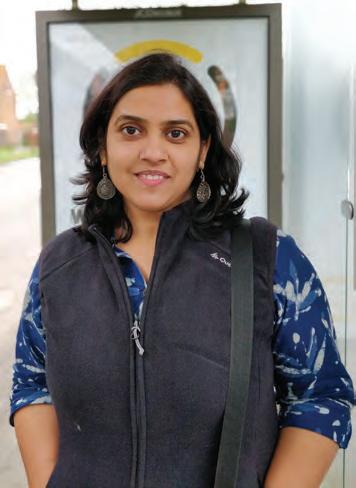
 Ms Sonia Kumari Assistant Professor, Kamala Nehru College, University of Delhi
Dr Aakash
Post-doctoral Research Fellow, University of California, Berkeley, USA, Department of Psychology
Ms Sonia Kumari Assistant Professor, Kamala Nehru College, University of Delhi
Dr Aakash
Post-doctoral Research Fellow, University of California, Berkeley, USA, Department of Psychology
Thanks to globalization and the emergence of technologies, international boundaries have become blurred. English, to a high degree, is a commonly understood medium of communication. It is one of the key tools that students need to perform well today and in the future. According to a global study, while recruiting, 98.5% of employers implicitly or explicitly assess a candidate’s English communication skills! There is therefore a growing demand for English communication skills, because it empowers people and enables them to lead a better life.
Functional communication skills, involving aspects of LSRW (listening, speaking, reading and writing), are central to knowledge acquisition, children’s intellectual, social and emotional growth, and life-long learning. Specifically, strong listening and speaking skills are not only vital in the overall language learning process, but also lead to better reading and writing skills. Yet, these foundational skills tend to be neglected in schools due to the high pupil-teacher ratio, lack of oral language-focused assessment, and most importantly, a lack of systematic and allocated practice time for these skills within the classroom.
Aligned with NEP 2020, NCERT learning outcomes and standardized to CEFR (Common European Framework for Reference) levels, Uolo Speak is a hybrid learning program that focuses on building, applying, practising, and assessing these core language skills.
First, through this book as one of the components of the program, the English classroom becomes an avenue to hone functional speaking skills in real time. The teacher-led activities give learners the opportunity to undertake high-quality, level-appropriate, and experiential activities that help to build confidence and expression in English.
Second, the mobile interface of the product ensures consistent practice of functional LSRW skills. These exercises go beyond traditional question types and employ cutting-edge technology to enable learning and generate instant feedback. For instance, learners practise speaking with Al (artificial intelligence), as if conversing with a real person!
Third, Uolo Speak assessment can be conducted by the school in sync with their academic calendars. The assessment is evaluated by Uolo’s English specialists to give performance report and feedback.
Finally, the reporting methodology used in the above three program components, generates a skill growth chart against CEFR levels for each learner, class and the school. Educators can then clearly identify learners who are reaching, meeting, and exceeding the level requirements, and support them accordingly.
Uolo Speak is a powerful, exciting, and unique experience for learners and teachers. It represents a real life and results-oriented approach to develop essential 21st century functional English skills.
Wishing all teachers, parents, and learners lots of fun and joyful experiences as you embark upon this exciting journey with Uolo Speak.
Dr Laraine O'Connell
D. Litt., English, North West University, South Africa
I am a veteran English teacher and lecturer, with a great love for English and for teaching. I have taught English and trained teachers over many years. I live in South Africa and it is a wonderful experience working with a company promoting the learning of English in India.

Each chapter is divided into three sections - Part A, E-Speak, and Part B.

Part A is period 1. It has one text and one classroom activity.
E-Speak section has two mobile app projects. These projects can be done at home or in school.
Part B is period 2. It has one fun activity and one presentation task.

Chapter number and name


Animation video
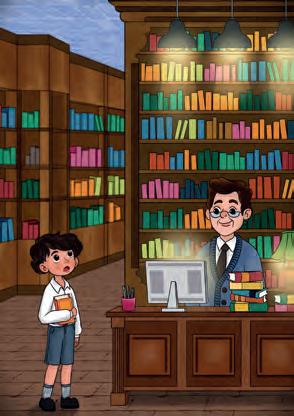
Text




















1 Talking Politely Formal conversations
Articulate thoughts correctly during a formal conversation
Use appropriate body language and polite expressions
2 Tell Us about It Describing an event Answer simple questions about an event
Describe an event with a few details

3 Tell Us in Short Give a summary Tell important details Tell a short summary
4 In My Imagination Sharing what is imagined
5 Questioning and Answering
6 Welcome, Problem Solvers!
Share imaginative thoughts
Share what is imagined with expression
Participating in Interviews Ask questions to gain information
Participate in an interview to gain/share information
Stating problems and solutions State a problem
Suggest solutions for problems 7 My Views Expressing a personal opinion
Share a personal opinion in a polite manner
Support your opinion with a reason
8 Rhyme a Few Lines Singing poems Create short poems
Telling about Events Creative expression
Present short poems and songs with expression 9
Narrate the key events from a story in a sequential manner
Enact a scene from a story/drama/ movie
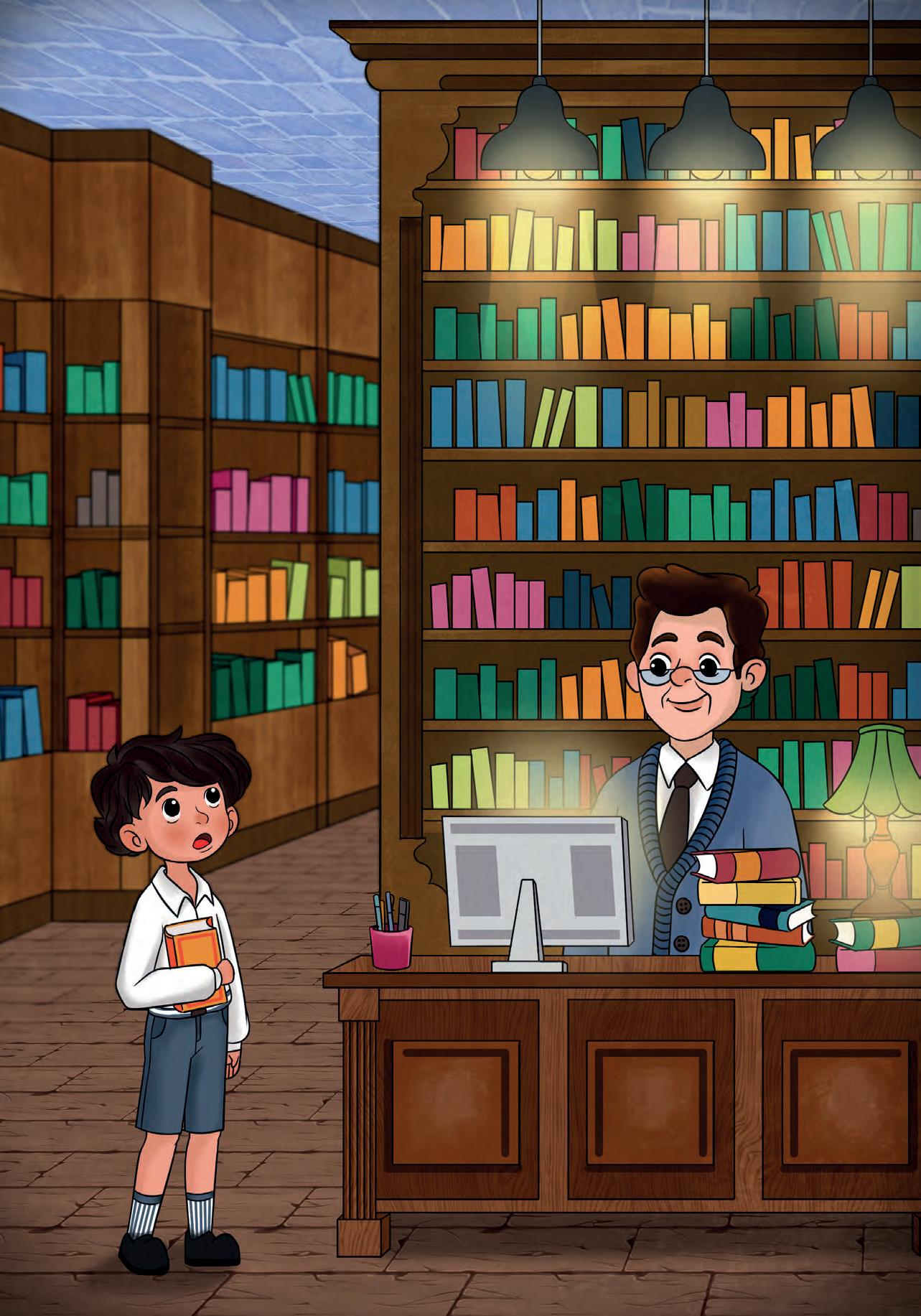

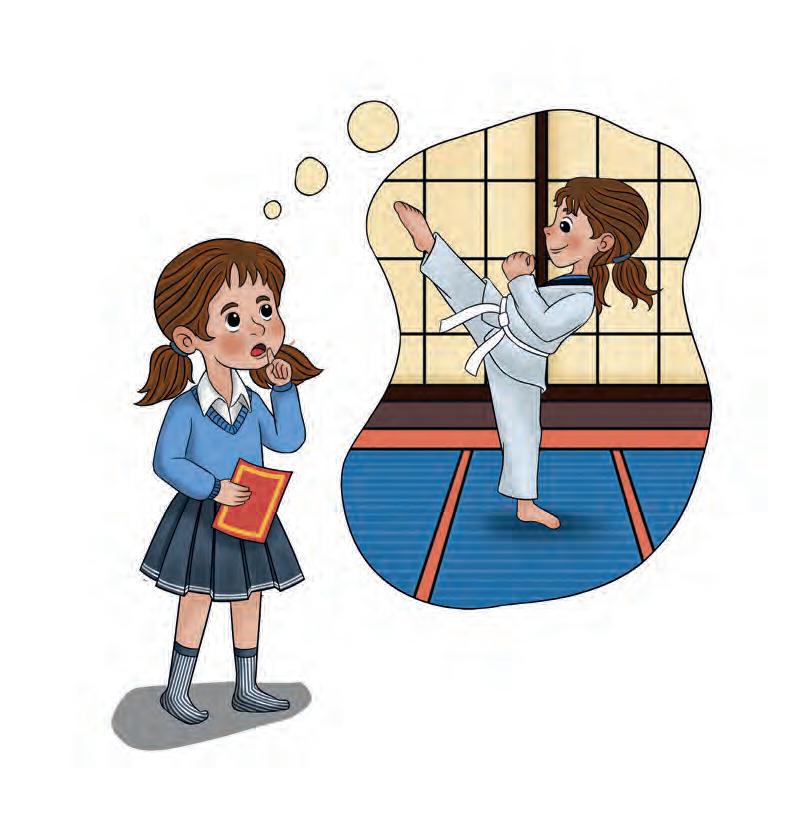

Boost your speaking!


Imagine you are Neha and your teacher is Ms Puri. Complete the conversation that will happen between Neha and Ms Puri next week.
nice to see you
Are you enjoying your Taekwondo classes?
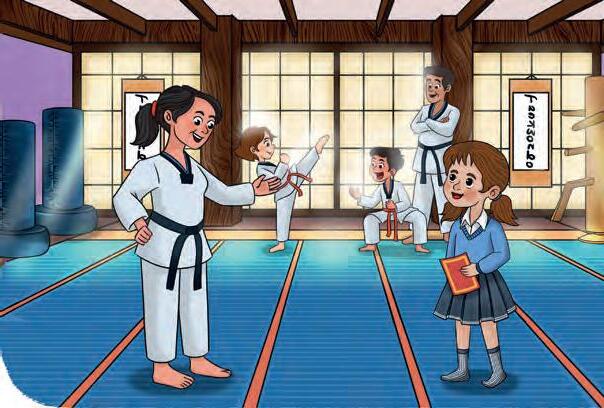
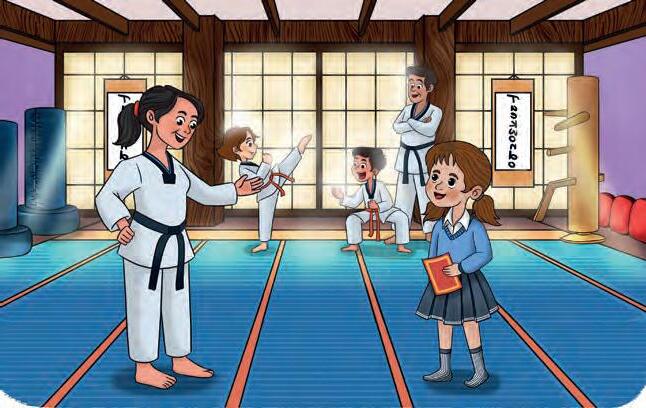
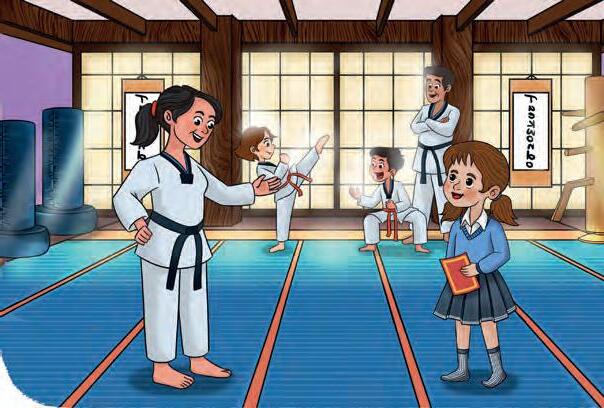
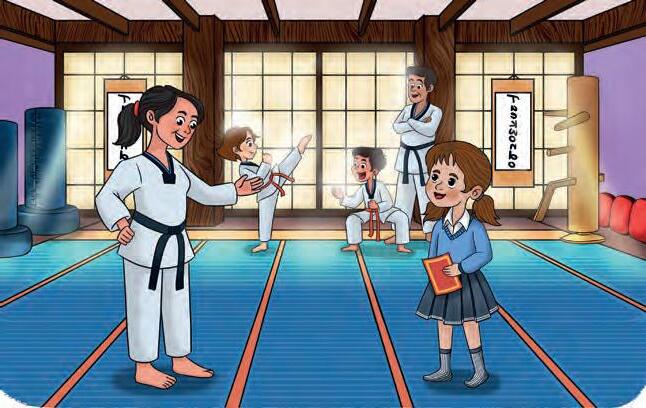
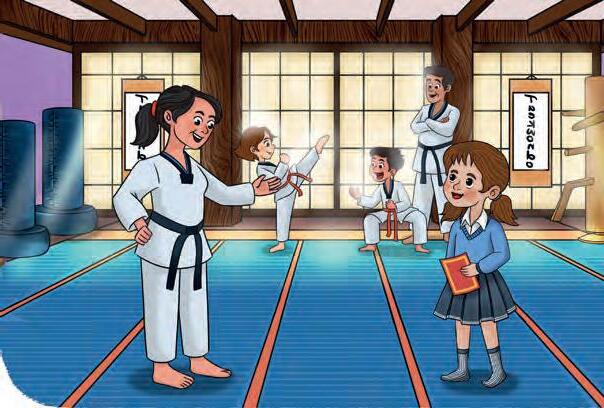
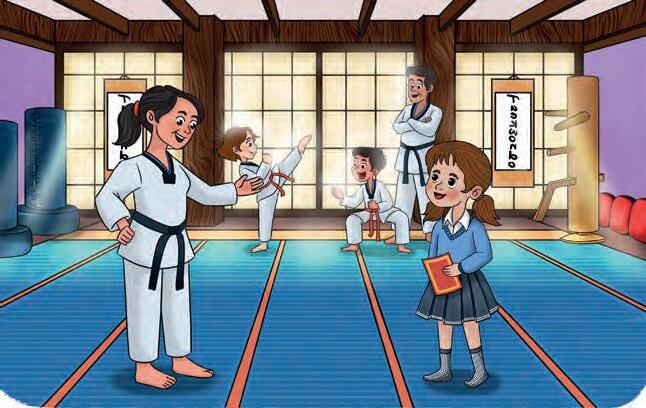
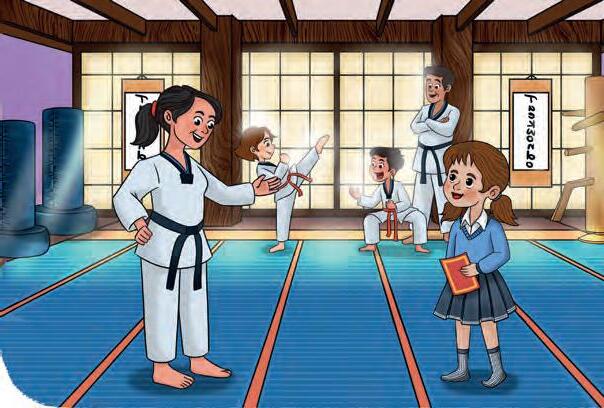
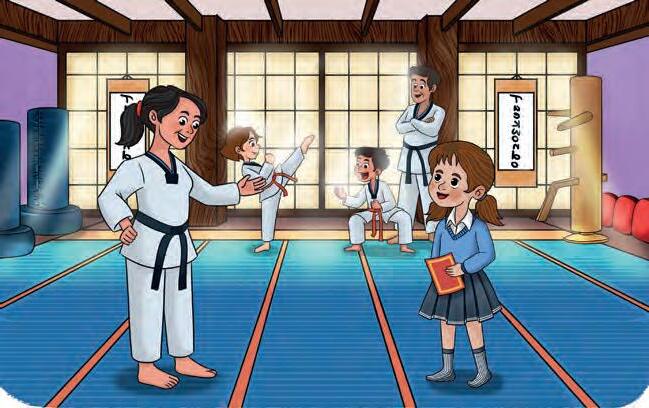
a little difficult
What do you like the most about the


making new friends
We have a Taekwondo tournament next month. Would you like to participate in it?
not ready yet would love to
Take help from the hints and speak in full sentences. You can add your own lines if you want. Look at the teacher while saying your lines.

You were not at home and missed receiving a package. Leave a voice message for your neighbour to ask about the package.



You have been delivered the wrong food item. Call the food delivery company. Ask them to send the food again or return your money. [Note: Please be polite.]










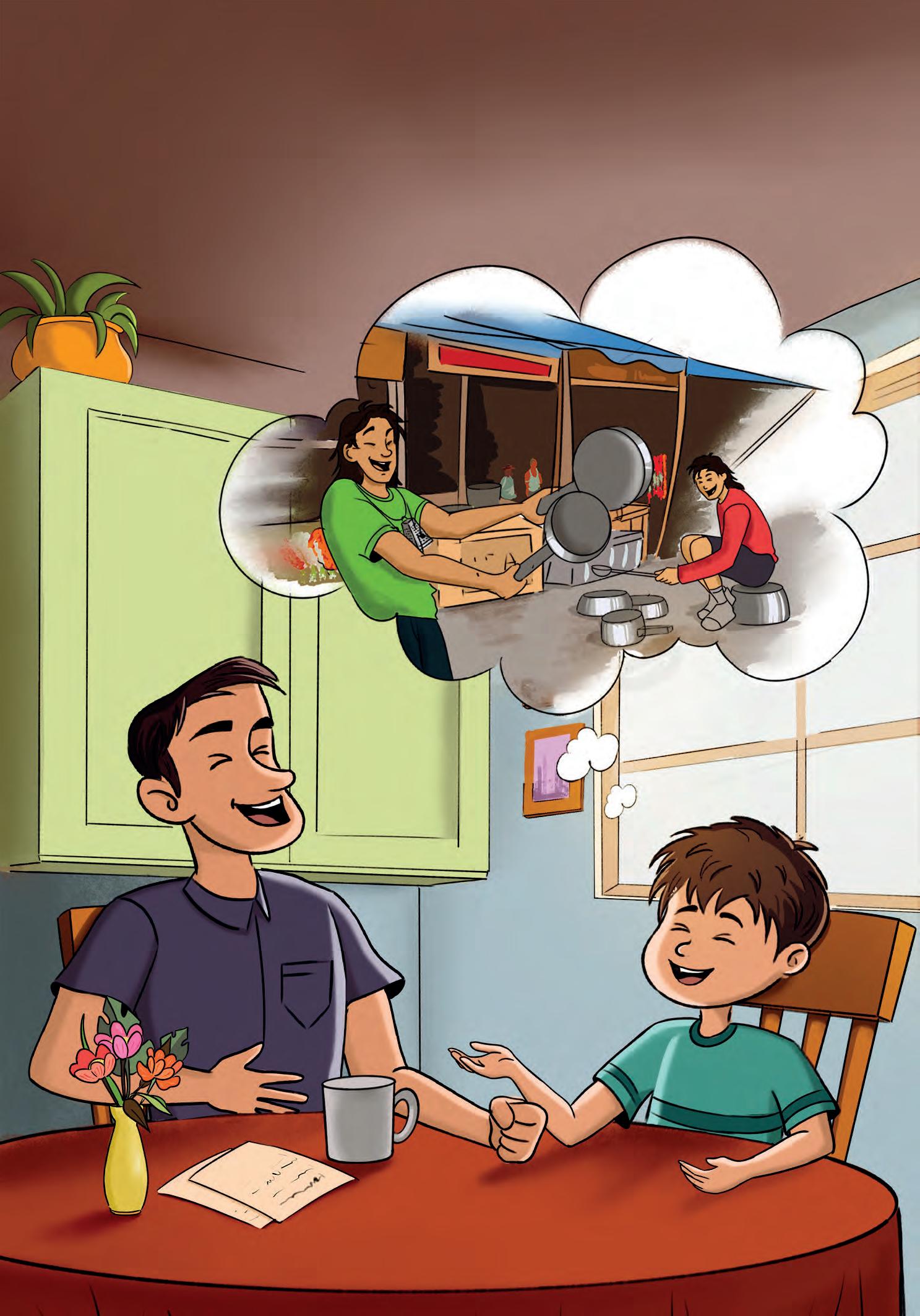





For example:
Hello, friends!
I went to the weekly market with my father.
I went to buy some fruit and vegetables.

I enjoyed shopping with my father.
We also ate chaat after shopping.
Speak loudly and clearly.
You can add 1–2 lines on your own too.
Do NOT repeat the sentences given in the example.




Mani is excited to tell you about his first train ride. Listen and record it.
Tell us about an important day of your life in 2–3 lines.



Number the pictures of the story in the correct order.


The final show!
Write about an event or experience. Tell your friends about it.




Tick (ü) any ONE of these events that you may have experienced. Think about that day. 1
When I went to watch a movie
When I got a prize
When I was sick
When I celebrated or attended a birthday party
When something funny happened to me
When I was scared
Write: Complete the sentences to tell what happened. 2
3
Hello, friends!
This is about the time .
(choose one option from above)
4
(tell date/time/place)

(tell 1–2 things about what happened or what you did)

(happy/excited/surprised/thankful/silly/proud/scared/wonderful/sad)
It happened on/in . . . I felt . Thank you.
Practise: At home, practise saying what you wrote many times.

Present: Come and tell your friends about what happened!
Speak with confidence and expression.

In the end, you can ask your friends if they also had a similar experience.

Rate each presentation!
Write your friend’s name
Write your friend’s name
Write your friend’s name

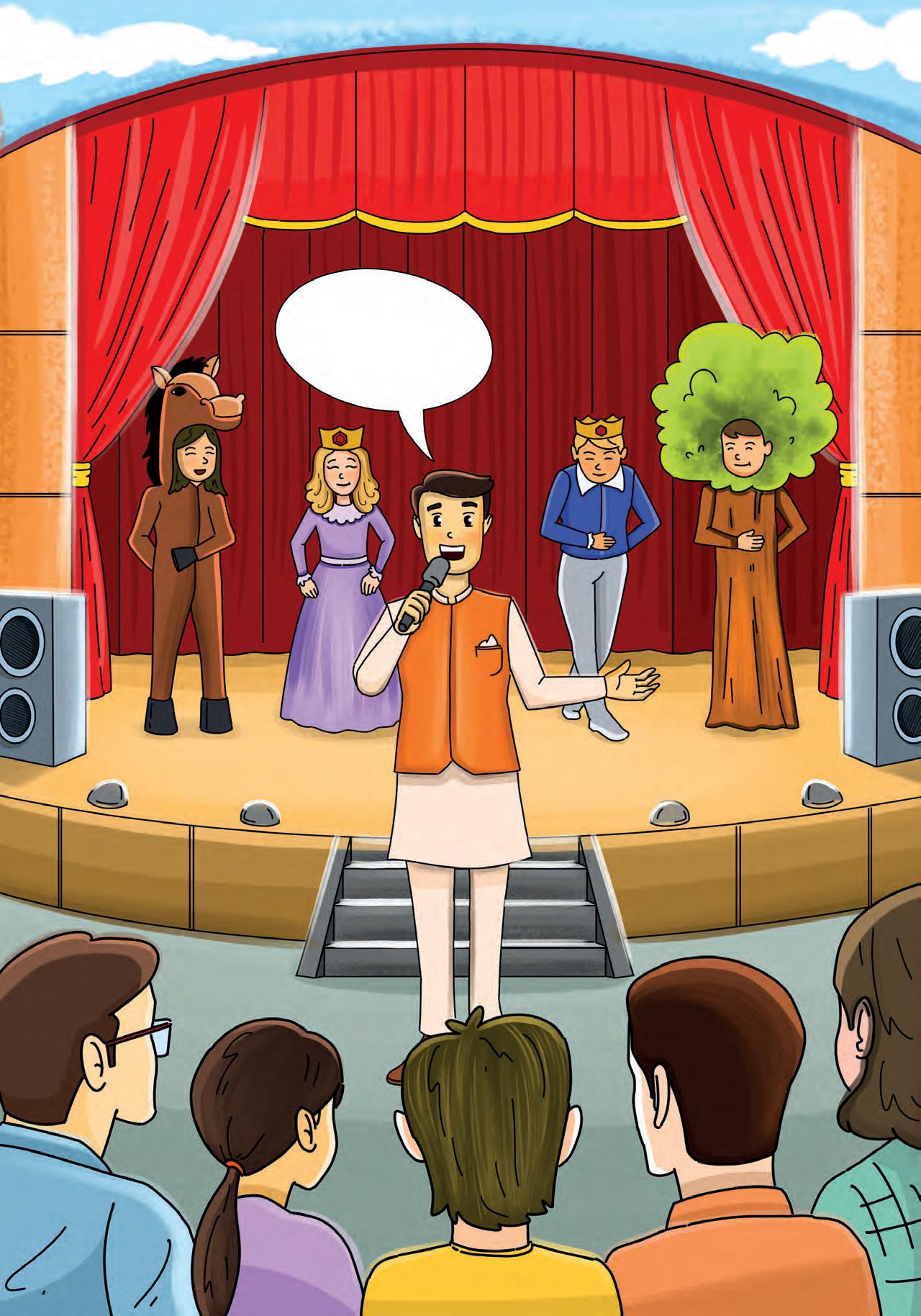



Boost your speaking!



Imagine you have to tell others about Dudhsagar Falls. What will you tell them? Tick (ü ) 2–3 MOST important points about Dudhsagar Falls and share the same in class.

It is very beautiful!
The Dudhsagar Falls is in Goa.
It starts in the high mountains.
It is a waterfall with four streams that merge into one.
It comes from the Mandovi River that starts in the mountains.
People can trek or travel by train/jeep to reach the waterfall.
Begin on a polite note. For example, Hello friends! Today, I will tell you about Dudhsagar Falls…
Say ‘Thank you’ in the end.
You can add 1–2 points on your own, too, if you wish.

Listen to the summary of the story The Selfish Giant. Then, record it.
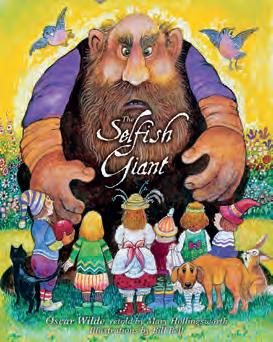



Which is your favourite story? Tell us about your favourite story in 2–3 lines.



Where would you like to go on a trip? Tick (ü) TWO options.


Munnar, Kerala: Famous for beautiful hills, waterfalls and tea plantations

Valley of Flowers National Park, Uttarakhand: Known for a wide variety of flowers

Gurudongmar Lake, Sikkim: One of the highest lakes in the world and in India

Puducherry: Famous for clean beaches and a variety of food
 Udaipur, Rajasthan: The city of lakes and palaces
Udaipur, Rajasthan: The city of lakes and palaces
The final show!
Think of your favourite TV show, cartoon or movie. Tell your classmates about it in brief.




Write: Complete the sentences about your favourite TV show/cartoon/movie. 1



Hello friends!
My favourite TV show/cartoon/movie is .
The main character is .
Some other characters are .
It is about .
My favourite thing about it is .
Thank you.
Practise: Tell the above details to your family members. Say it a few times with expression.





Present: Present about your favourite TV show, cartoon or movie in class.
Stand straight when you speak. Speak loudly. Say each word clearly. Make eye contact with your audience.

Rate each presentation!

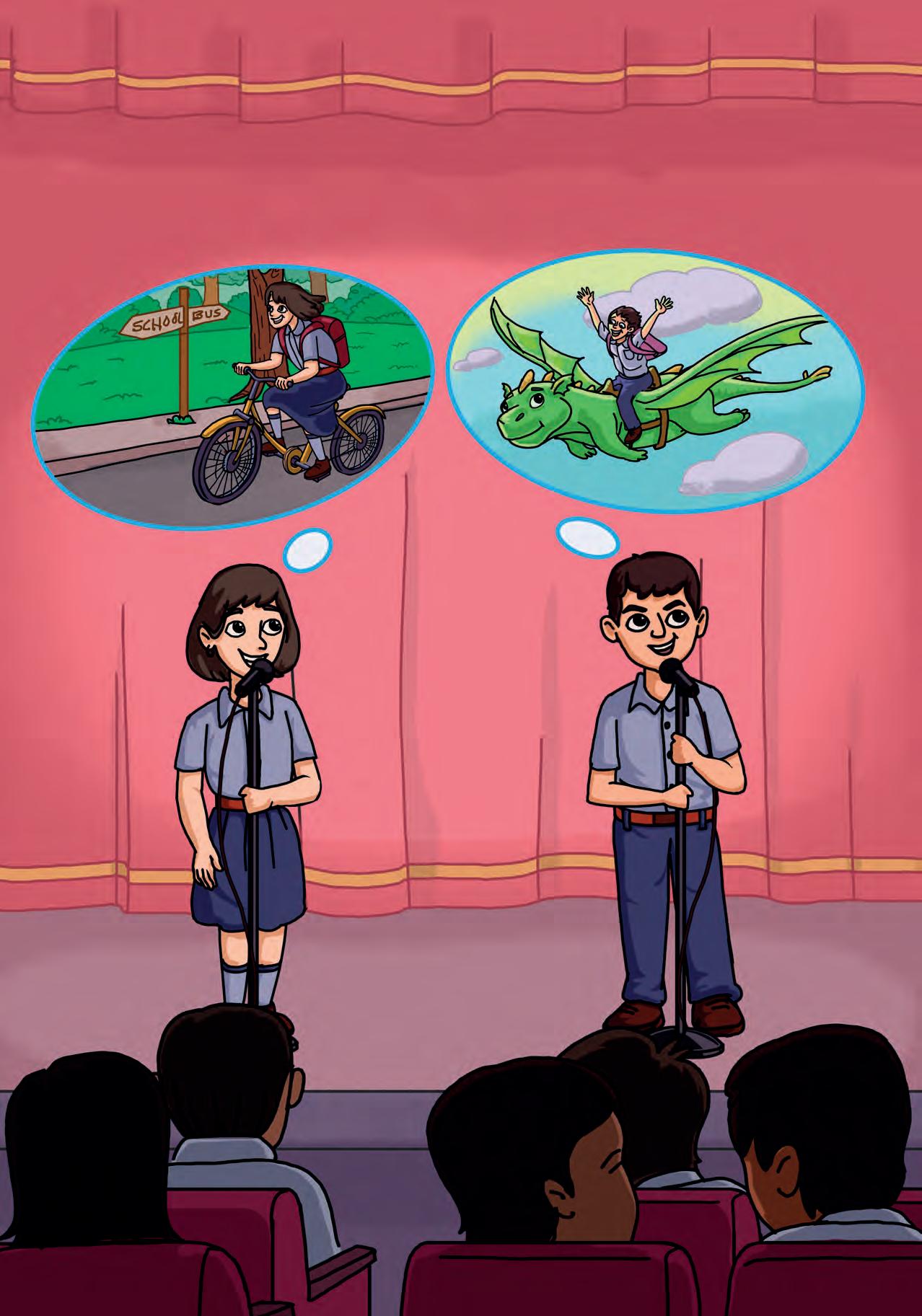
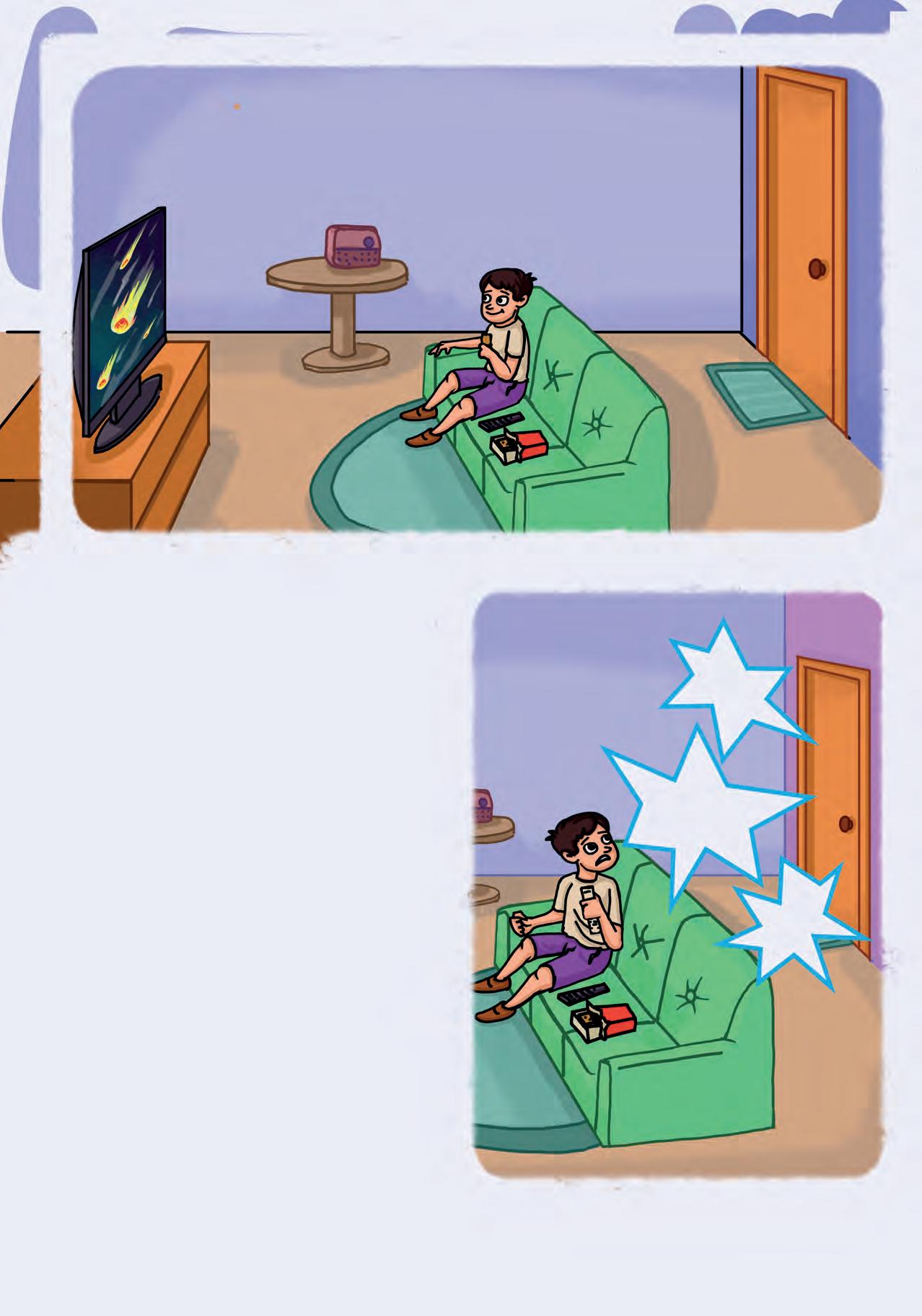



Imagine you are Rahul. How would you react in the three given situations?
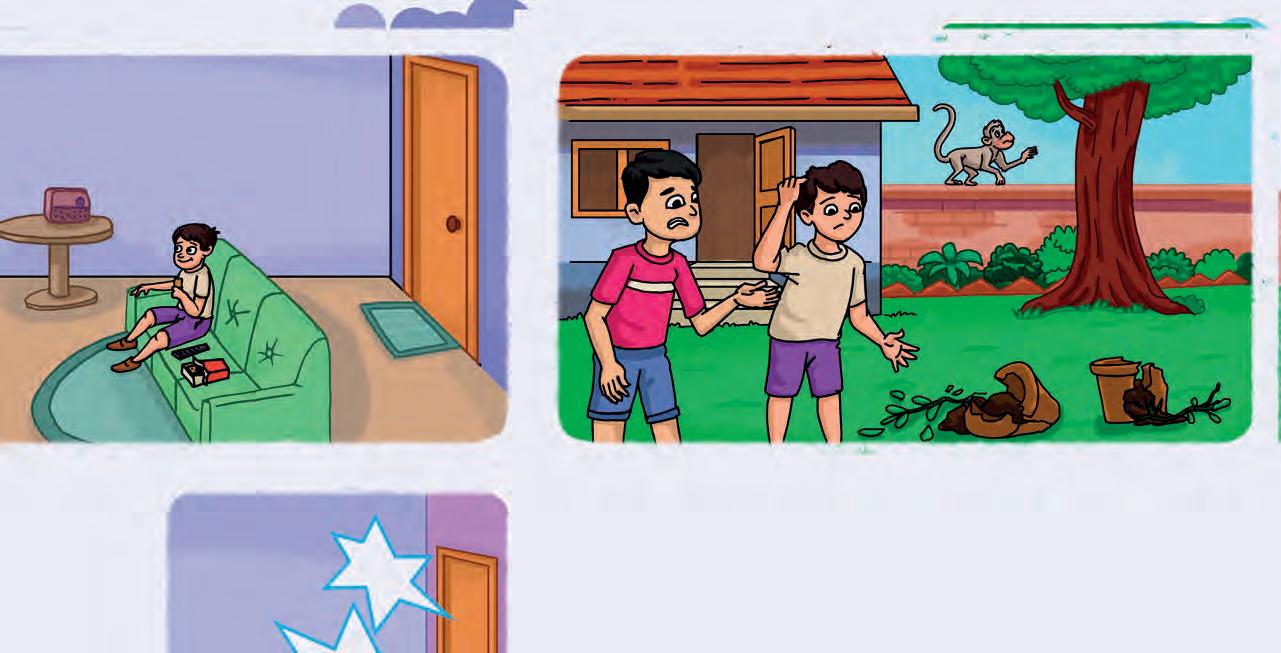
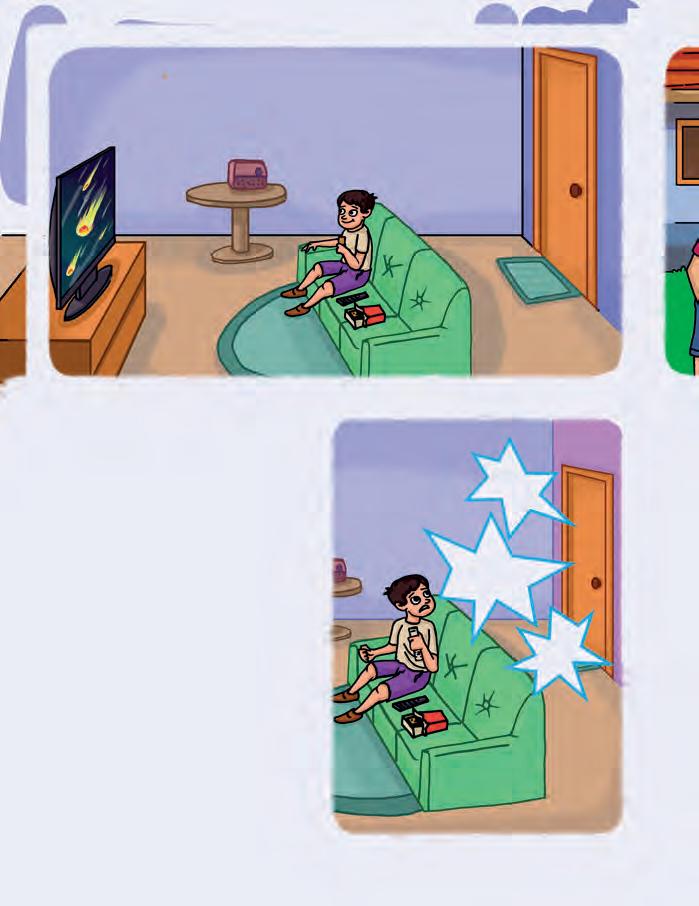
go back to sleep
Boost your speaking! call somebody


run away watch television call the police
turn on the radio
If I hear a strange voice coming from outside my window, I will…
If something strange crashes into my garden, I will…
 THUD!
CRASH!
THUD!
CRASH!
Practise at home!
Aryan had a beautiful dream about his school. Listen and record it.



Imagine you have a robot at home. Tell us THREE things you will make it do for you.







Write: Make notes on what you will do with the superpower.

I hope you are having a good day.
If I had one superpower, it would be .
(write one thing you will do)

With my power, I will .
I will also .
It would be so cool!
(write another thing you will do)
Practise: Now, practise speaking your lines at home with an elder. 3


Present: In class, tell everyone about the superpower you want. 4
You can add your own answers other than the hints.
Speak with expression.
Read from the notes if needed.

Rate each presentation!
Write your friend’s name
Write your friend’s name
Write your friend’s name

Interview Hour
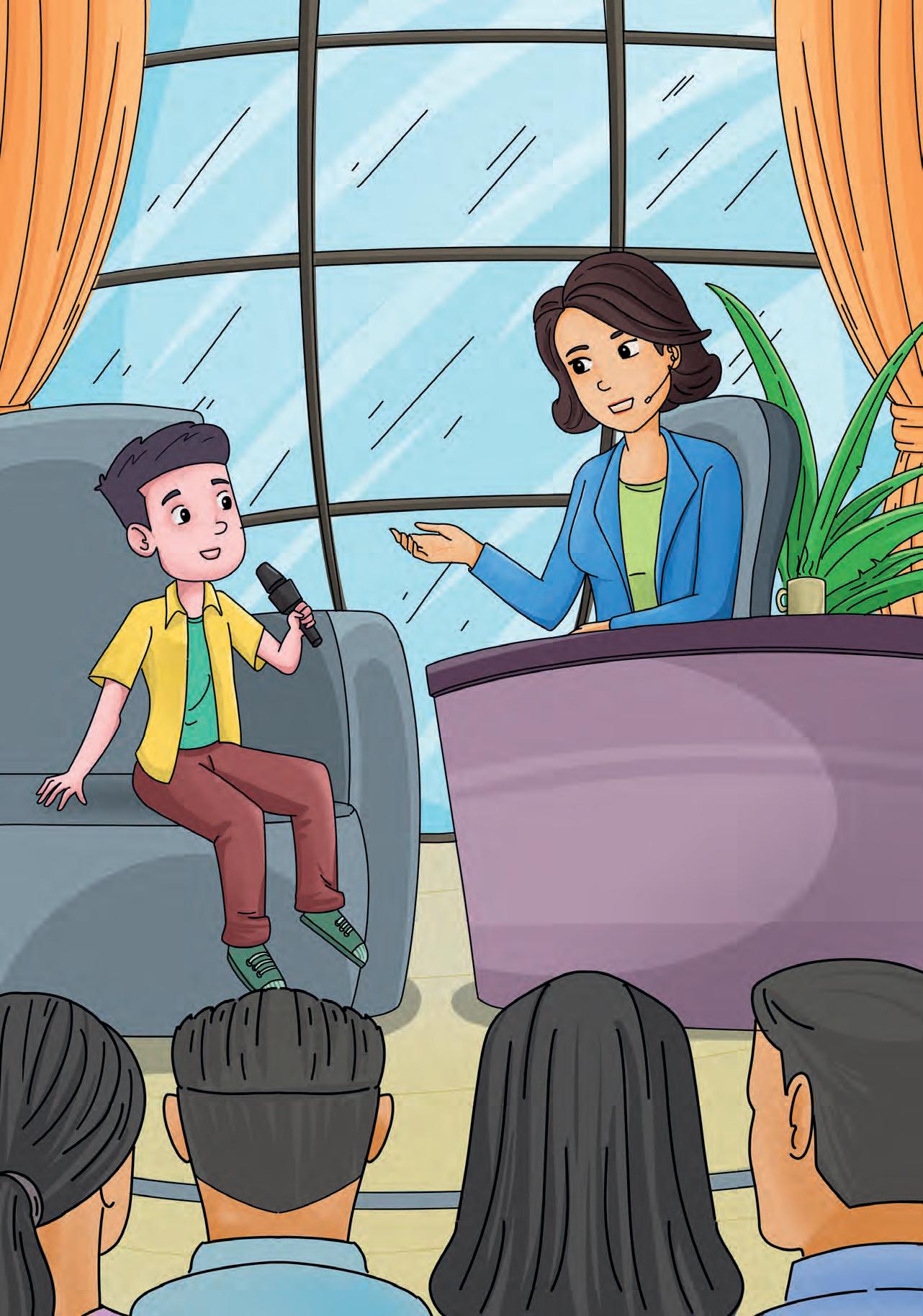
Teacher: Settle down, class. We have a special guest with us today. She wrote her first book at the age of 20. Her second book was on the bestselling list for three years. Please welcome the famous author, Ms Gayatri Kaur.
Ms Kaur: Good morning, students. I am so glad to be here today.
Teacher: Thank you for your time, Ms Kaur. Students, if you have any questions for her, please feel free to ask her one by one. Atul, you can go first.
Atul: What inspired you to write your first book, Ma’am?

Ms Kaur: It was my niece! When she was 3 years old, she loved listening to stories. At one point, I started creating stories of my own. She inspired me to write “First Steps, First Stories”, a storybook for children.
Neena: That is so exciting. What was the book about?
Ms Kaur: It was a collection of funny short stories for toddlers.

Anju: Ma’am, do you write all day when you are working on a book?
Ms Kaur: No, I like writing during the night-time. I write on my terrace.
Jaskiran: How long does it take you to write an entire book?

Ms Kaur: It took me three years to write my first book. But with experience, it takes me lesser and lesser time.
Raj: Ma’am, have you ever used any story from your childhood in your books?
Ms Kaur: Haha, yes! I once drew all over my brother’s school books with my crayons. I have written about that incident in one of my books.
Gaurav: Ma’am, I would also like to ask you something about your childhood. Did you ever come first in class when you were in Grade 5?
Ms Kaur: (laughing) No, I was just an average student. But I always had a good imagination! Imagination is the key! I used to think about new stories with interesting characters all the time.
Shobha: Ma’am, will you teach us how to write a good story?
Ms Kaur: Sure, that’s why I am here! Let’s begin.
Boost your speaking!

Ask your teacher a few questions. You can take help from below.
Why did you…?
What is your favourite…?
When did you…?

Who is your favourite…?
Do you like/enjoy…?

For example:
Why do you like teaching this subject?
How do you teach…? you like…?

Why do
What is your favourite part about teaching our class?
You can ask questions only about your teacher’s work, subject, education, likes, dislikes and hobbies. Speak clearly and loudly.

Do NOT repeat the questions given in the example.






Vinay is new to the school. He asks his new friends questions about the school. Listen to the conversation and record it.
Sneha, a reporter, wants to interview some school students. Share any THREE questions that she can ask the school students.













My favourite game is
Name of Student 1:
Name of Student 2:






Write: With your partner, complete the following conversation. 2


. What is your favourite game?

My favourite game is .
Oh, great! If you could have any superpower, what would it be?
I would like to
. What about you?
3
4




I want to .


I have one last question for you. What ? .
. What about you?


Practise: Practise the conversation with your partner.

Present: In class, present the conversation in front of everyone.
Speak confidently.
Use a lot of expressions when you speak.
Look at each other when you present.
Rate each presentation!

Write your friend’s name
Write your friend’s name
Write your friend’s name




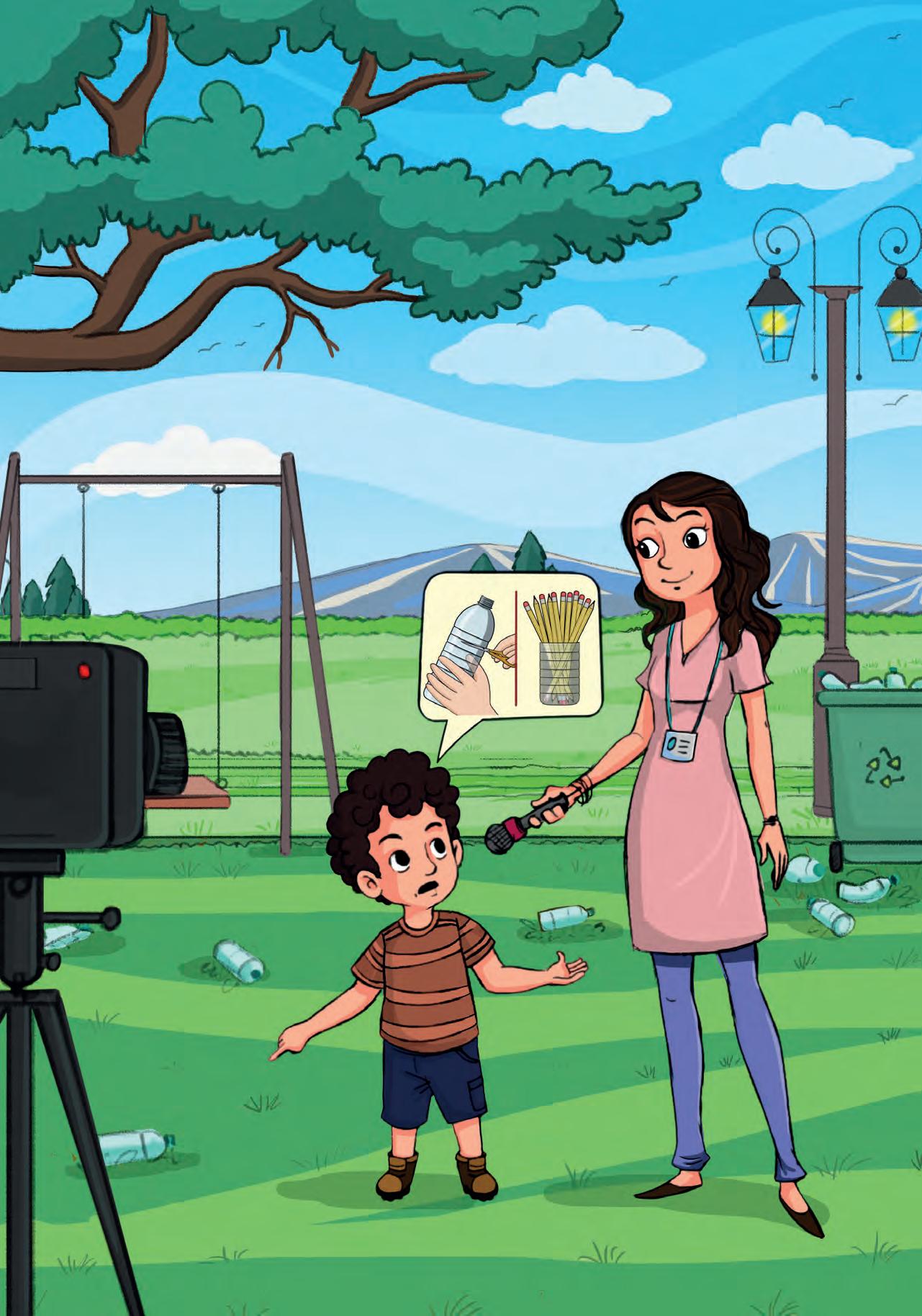






Look at the following problems. Choose any ONE problem. What would you do to solve it? Share your thoughts with the class.
1
You lose your friend's story book.
2
You forget to bring your English notebook.
3
You have read all your comics, but you don't want to throw them away.
Possible solutions
Tell the teacher
Fix it yourself
Say sorry
Tell parents
4




You do not have enough money to buy you favourite comic.

Hello, everyone!
If I lose my friend’s book, I will…
I could also… Thank you.
Ask elder brother/sister for help
Ask friends for help
You can add more details as well.
Practise at home!
You and your friend have lost your way to the park. Together find a solution to this problem.

The road in front of your house is being littered daily. How will you keep it clean? Give TWO solutions.





forgot to get lunch to school
found a lost bottle in school
got a flat tyre on the way to school
forgot the homework worksheets/notebooks at home




ask for help leave it as is
ask around talk to elders tell someone write about it report it

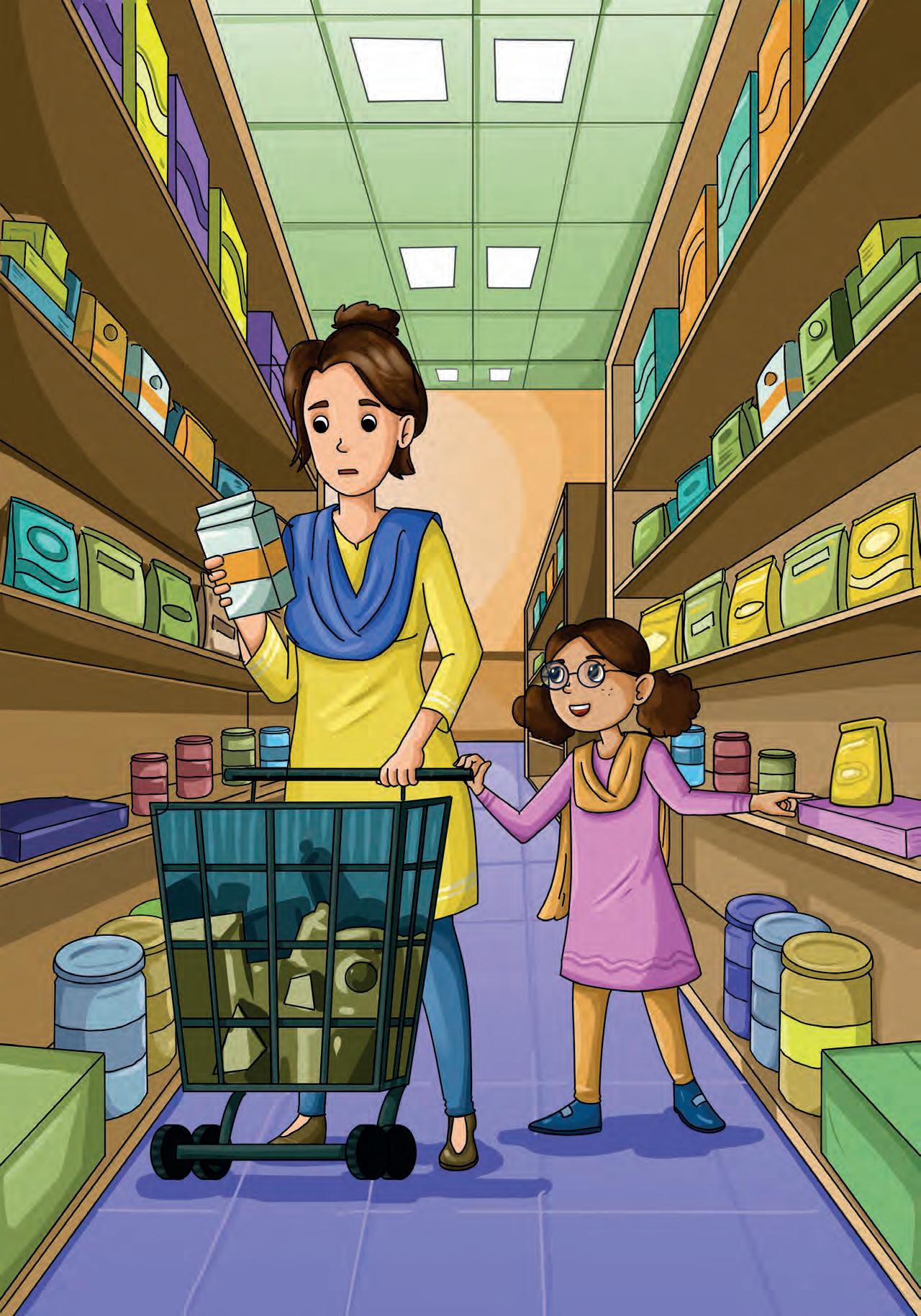


I am Harman. I like magazines and quiz books because I can stay up to date with what’s happening in the world.
I am Karuna. I like comics because they teach us new things in fun and interesting ways.




colourful pictures


interesting variety of topics
general knowledge
easy language
Speak loudly. Look at your friends while speaking.
Speak in complete sentences.
Start your response with "I agree with..." Then, give 1-2 reasons.
Practise at home!


Listen to Isha’s thoughts on why we should eat fruits every day.



Should there be a canteen in school? Tell us in 3–4 lines. Give reasons for your views.



Earth has two suns.





Octopus has eight legs.



Paper is made from trees.

It is sunny at night.




Hello, friends!
I am here to tell you whether I like indoor games or outdoor games. I think are better because .
Also, I feel/think/believe .
Finally, I would like to end by saying .
Thank you.
Practise: At home, practise many times. Speak loudly. 3

Present: It’s time to share your thoughts with the class. Tell everyone what you like more — indoor games or outdoor games. 4


Speak loudly.
Speak with a lot of expressions.
You can bring the game to the class and show your friends.


Rate each presentation!
Write your friend’s name
Write your friend’s name
Write your friend’s name



Welcome to the crazy world of animals, where they all have daily jobs. They excel in their occupations, and no one ever sobs.
Have you seen the giraffe and its long neck?

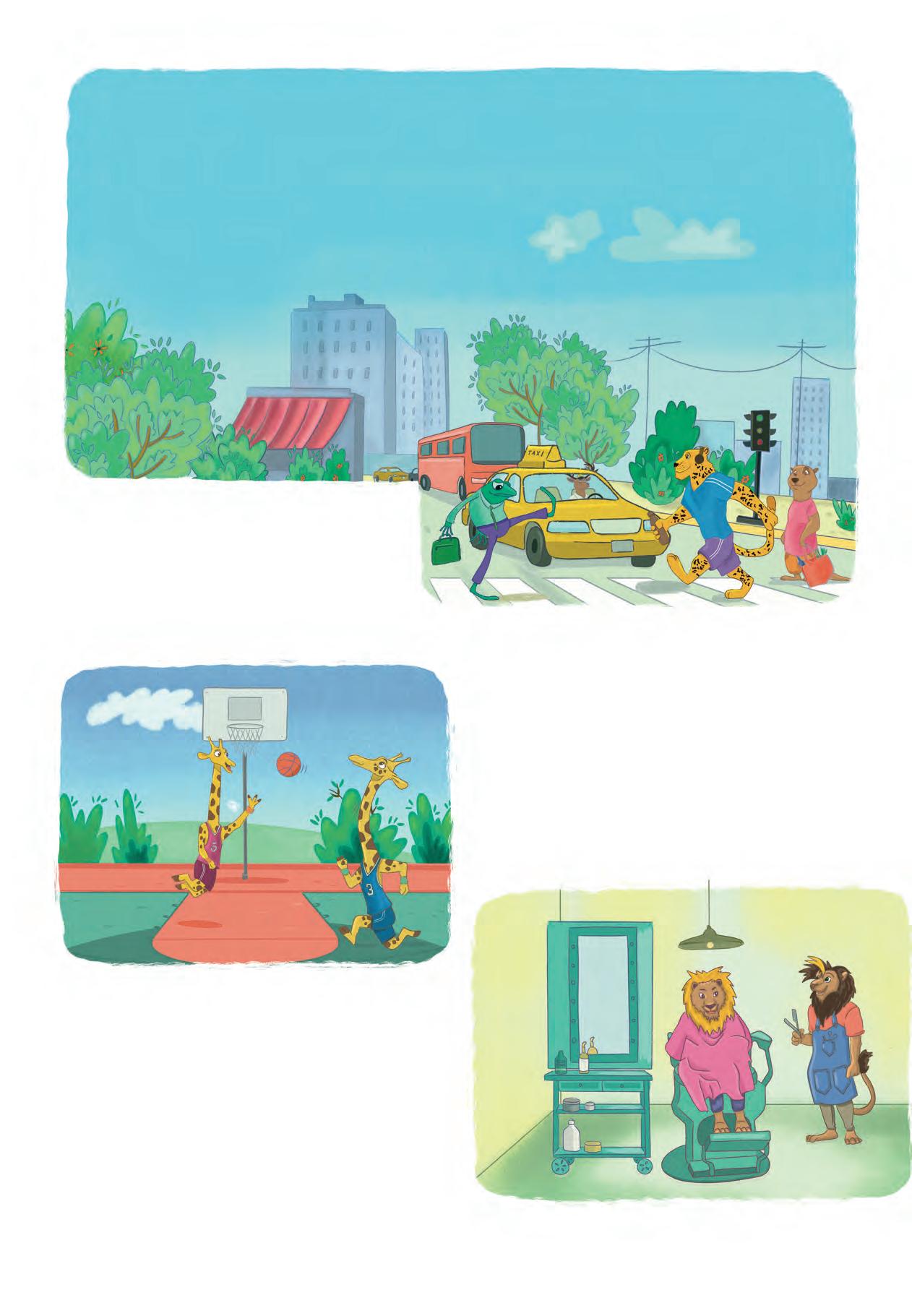
Well, he is a famous basketball player.
The lion opened a brand-new haircutting salon, because of his own gorgeous hair.
Whenever there is a fire in the city, the elephant and his trunk come to the rescue.

Pick up your phone and call the crane, if your food delivery is due.

The butterfly designs all the fabulous clothes, the colours of her wings are light and deep.
The watchful owl whistles at night, so that everyone can have an undisturbed sleep.
fabulous (fa.byoo.luhs): very good gorgeous (gaw.juhs): very beautiful occupations (aw.kyoo.pay.shnz): jobs rescue (reh.skyoo): the act of saving someone from a bad situation


Boost your speaking!

Sing the following short poems.

My dog Pluto loves to chew. He eats everything old and new. He licks my toys and my socks, Yellow, orange, pink, and blue!
My grandfather has a big clock. It is made of glass and wood. Every hour it announces the time, To the entire neighbourhood.
Little Dolly was playing in the park. When she found a big blue stone, She asked around; it belonged to no one, So she spoke to the police over the phone.
Look at your friends as you recite your stanza. Sing in tune and with expression. Do some actions.





Listen to the poem. Then, record it. Project
Sing 5–6 lines from your favourite English song or a poem with a lot of expression!

Match the funny questions with the funny answers.

Where do polar bears keep their money?
With ten-tickles!
How do you make an octopus laugh?

Why can’t a leopard hide?
They go to the moo-vies!
In a snow bank!
Why was six afraid of seven?
Because he’s always spotted!
Where do cows go on Friday nights?
Because seven eight (ate) nine!
The final show!
It’s time for you to think and be creative! Add some lines to the poem given and present it to the class.
1
Read the lines from a poem. Look at how some words rhyme with each other, like day – way.




Mom sent me to buy some fruit from the market one day. But I went to the park instead because I lost my way!
Write: Now, add TWO more rhyming lines to the poem. Use the help words, if needed. Give your poem a nice title! 2
play hey may hurray pray say tray pay okay
(title)
Mom sent me to buy some fruit from the market one day. But I went to the park instead because I lost my way!
Practise: Sing the poem you made many times at home.

Present: Recite your poem to the class. Sing in tune and with actions.

Do not forget to tell the title of your poem. You can add more than two lines to the poem, if you wish.


Rate each presentation!
Write your friend’s name
Write your friend’s name
Write your friend’s name


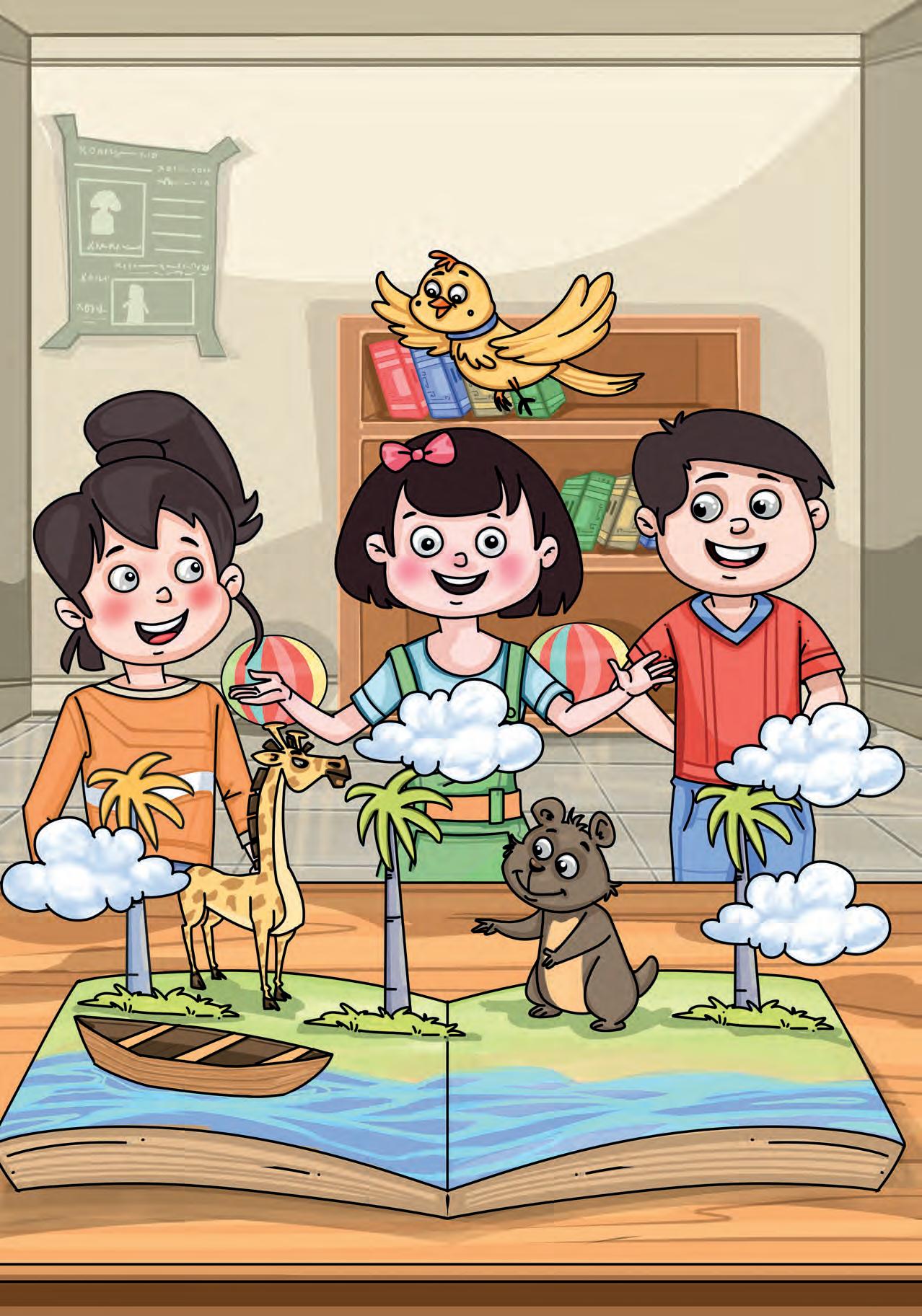
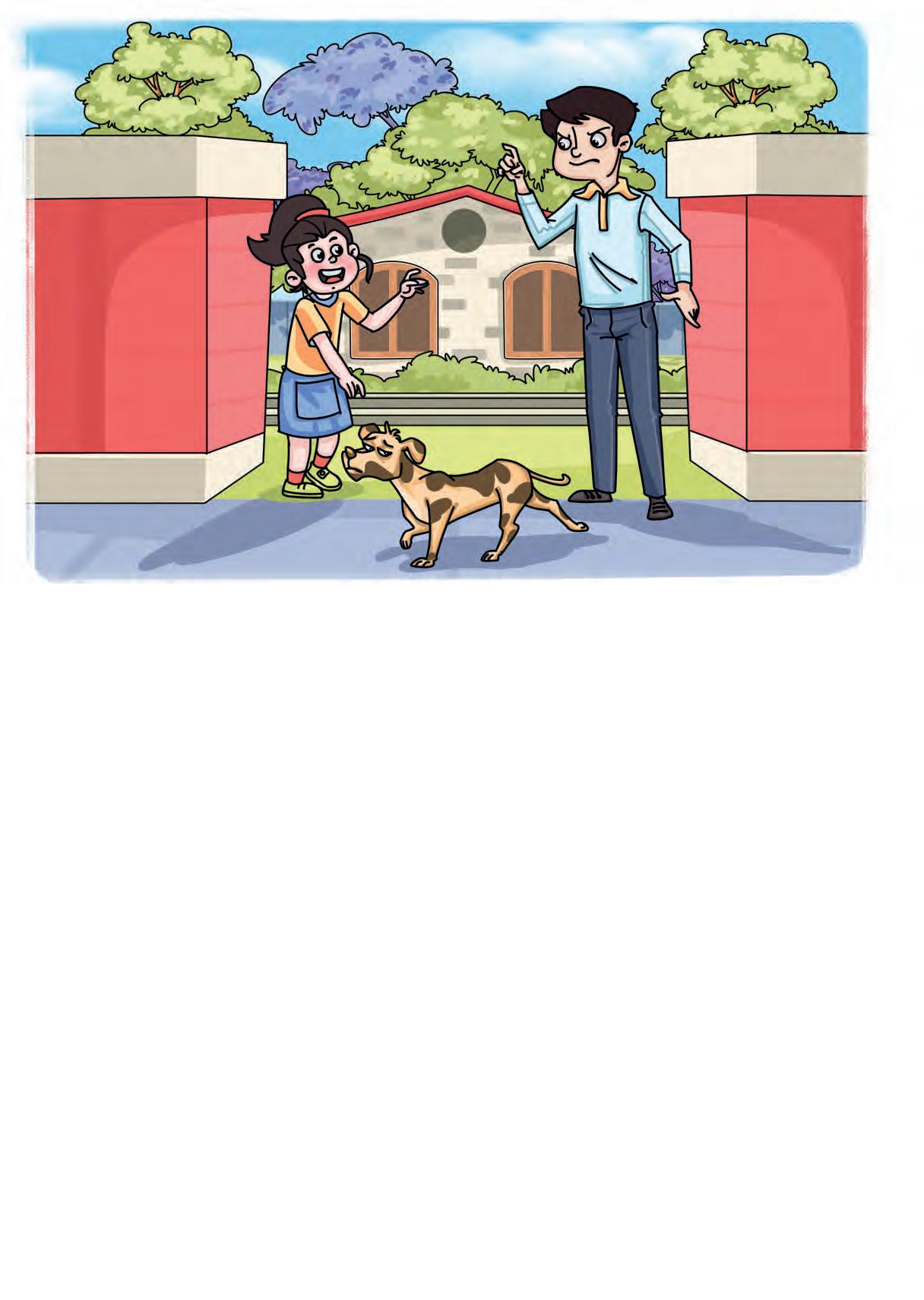





Anju saw a little brown puppy outside her gate. On your turn, tell in your own words what happened next in the story. You can number the events from 1 to 5.

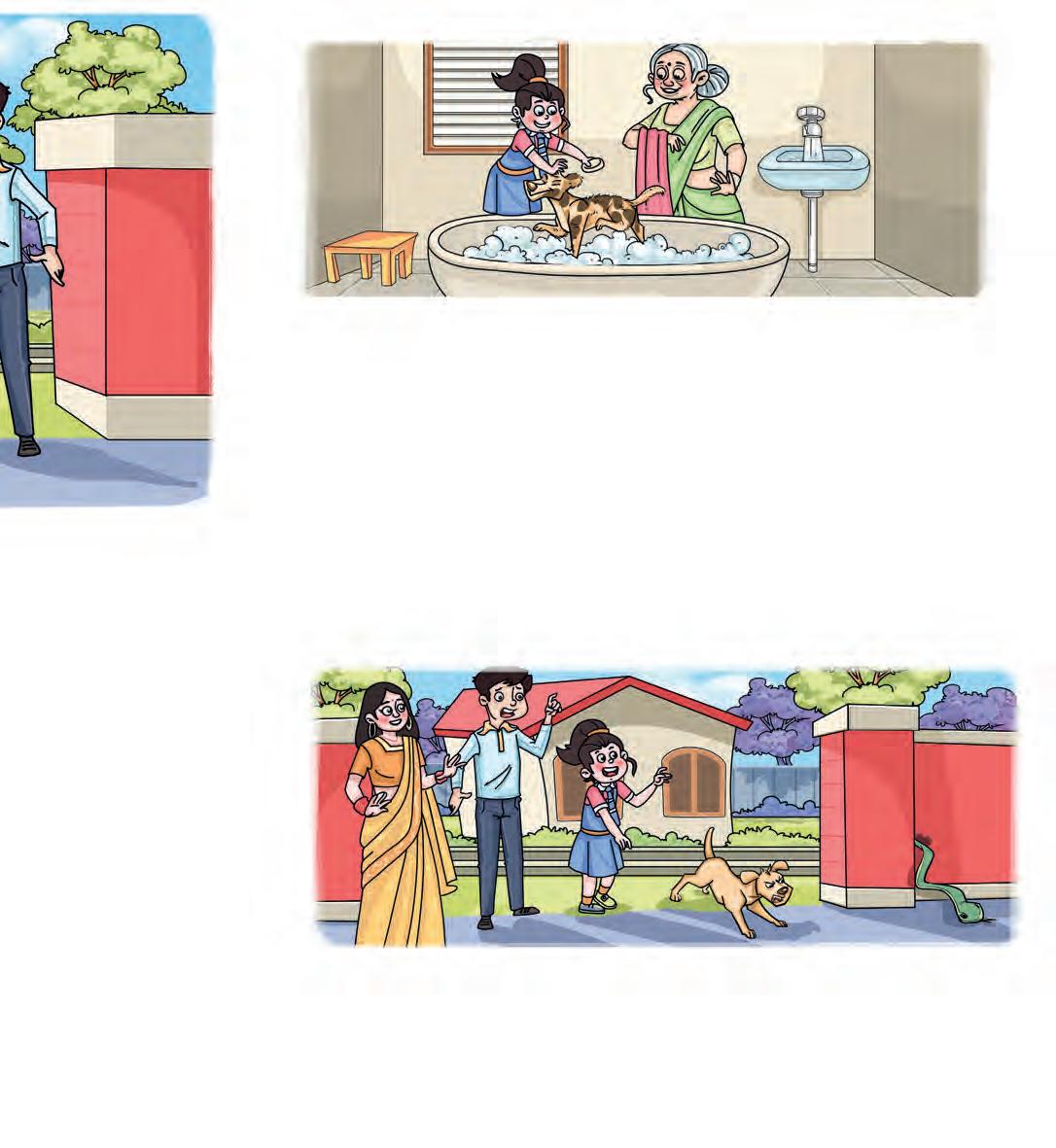

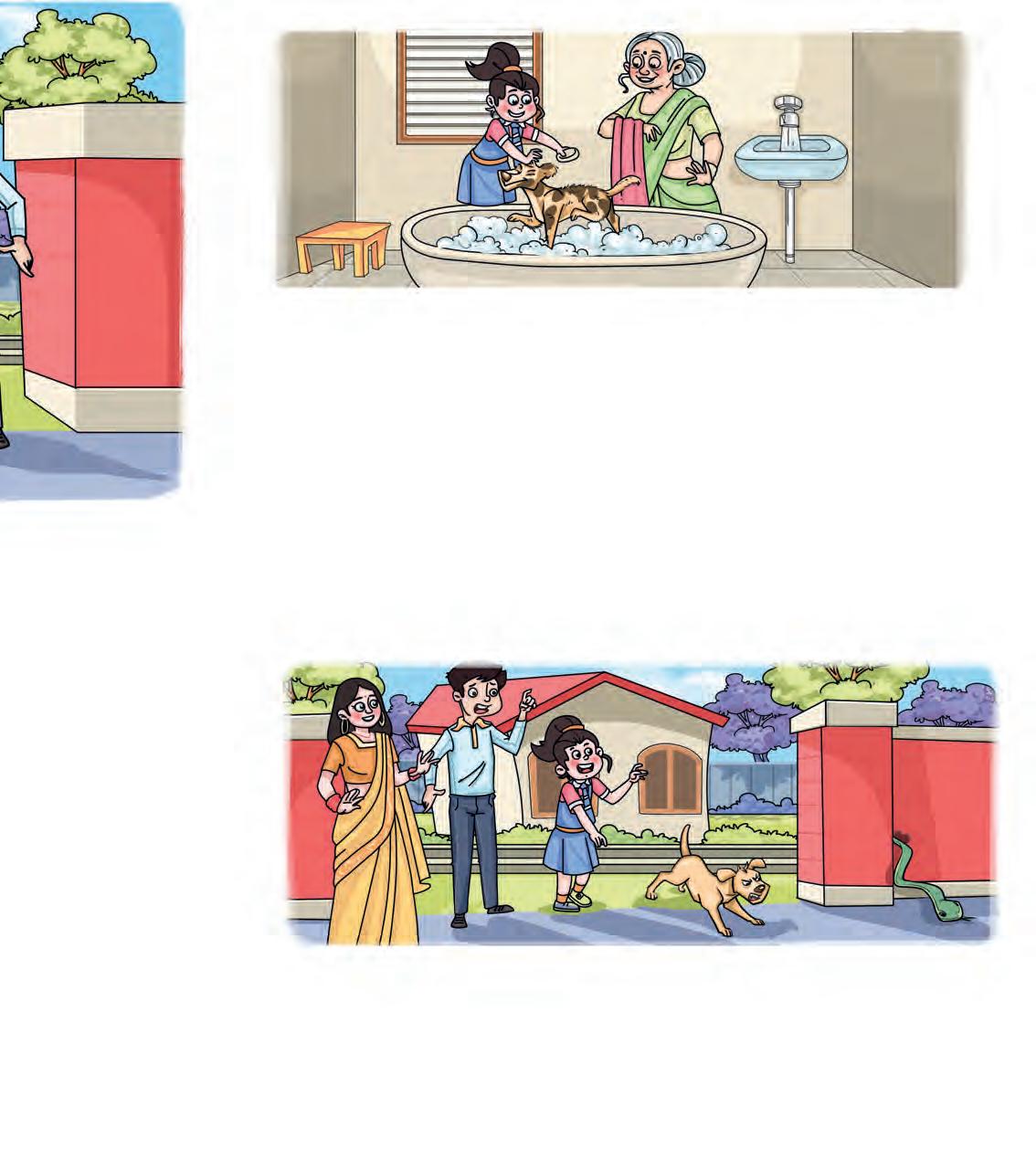
The puppy ate...

Jia had a great day yesterday. Listen to what she did. Then, record it in your own voice.



What is your favourite story? Tell us the story in 3-4 sentences.

Match the emotions with the correct pictures of the dogs.


Happy Afraid
Tired


The final show!
Discuss and write what happened at the school picnic that you missed. Then, practice with your partner and present a short scene in the class.


Get into pairs. 1
2
Name of Student 1:
Name of Student 2:
You missed the school picnic. You need to ask your friend what happened at the picnic. Here are some words to give you ideas.
Write: Complete the dialogue with your partner. Use the help words, if needed. 3


Student 1: Hello! I missed the picnic to the .

When did you reach? How did you go there?
Student 2: Hi! We reached at . We went by .
Student 1: What did you do ?
Student 2: .
Student 1: .
Practise: Now, practise speaking your lines with each other.
Present: With your partner, present the short scene to the class.
Speak loudly and clearly. Use a lot of expressions. Refer to the notes while you present. Look at each other when you speak.





Rate each presentation! Write your friend’s name Write your friend’s name Write your friend’s name


The 'Conversations' book follows a unique spiralling approach that systematically builds language skills and enables children to express themselves verbally in real-world situations, thus preparing them for the needs of the 21st century world. Each chapter focuses on building specific and age-appropriate English language competencies by weaving together activities that are contextual, experiential, joyful, and research-based.
• Activity-based Learning: The book offers joyful and experiential activities that build English communication competencies.
• Texts as per NEP 2020 themes: The book has exciting and stimulating texts that pave the way for English communication activities.
• Tech Integration: The book works in sync with the digital world, where various other activities and projects are undertaken. Learner outputs are evaluated through an AI-based speech recognition engine.
• Assessment of Speaking & Listening as per CEFR: The program includes special assessment that allows systematic reporting on growth of English language skills as per the CEFR.

• Teachers’ Manual: The book is complemented by the Teachers’ Manual that enables teachers to conduct each session effectively.
Uolo partners with K-12 schools to provide technology-based learning programs. We believe pedagogy and technology must come together to deliver scalable learning experiences that generate measurable outcomes. Uolo is trusted by over 8,000 schools with more than 3 million learners across India, South East Asia, and the Middle East.